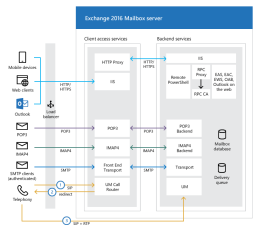Microsoft “strongly” advises users to maintain their Exchange servers up to date and take precautions such as enabling Windows Extended Protection and configuring the certificate-based signing of PowerShell serialization payloads.
The software giant’s Exchange team says attackers trying to target unpatched Exchange servers will not stop. This is because the value of an unpatched on-premises Exchange infrastructure to hostile actors seeking to steal data or commit other misdeeds is too great.
Microsoft also noted that the mitigations it has released is only temporary fix and may “become inadequate to guard against all permutations of an attack,” requiring users to apply the necessary security upgrades to secure their servers.
In recent years, Exchange Server has emerged as a viable attack vector due to various vulnerabilities in the program that have been exploited as zero-day vulnerabilities to hack into computers.
ProxyLogon, ProxyOracle, ProxyShell, ProxyToken, ProxyNotShell, and a ProxyNotShell mitigation bypass known as OWASP SSRF are just a few of the sets of vulnerabilities that have been found in Exchange Server only in the last two years. Unfortunately, some of them have already been widely exploited in the field.

MANAGED CYBERSECURITY SOLUTIONS
Rhyno delivers a range of activities that combine to fully protect your infrastructure and data from cybercriminals, anywhere and everywhere, 24/7/365.
About Rhyno Cybersecurity Services
Rhyno Cybersecurity is a Canadian-based company focusing on 24/7 Managed Detection and Response, Penetration Testing, Enterprise Cloud, and Cybersecurity Solutions for small and midsize businesses.
Our products and services are robust, innovative, and cost-effective. Underpinned by our 24x7x365 Security Operations Centre (SOC), our experts ensure you have access to cybersecurity expertise when you need it the most.